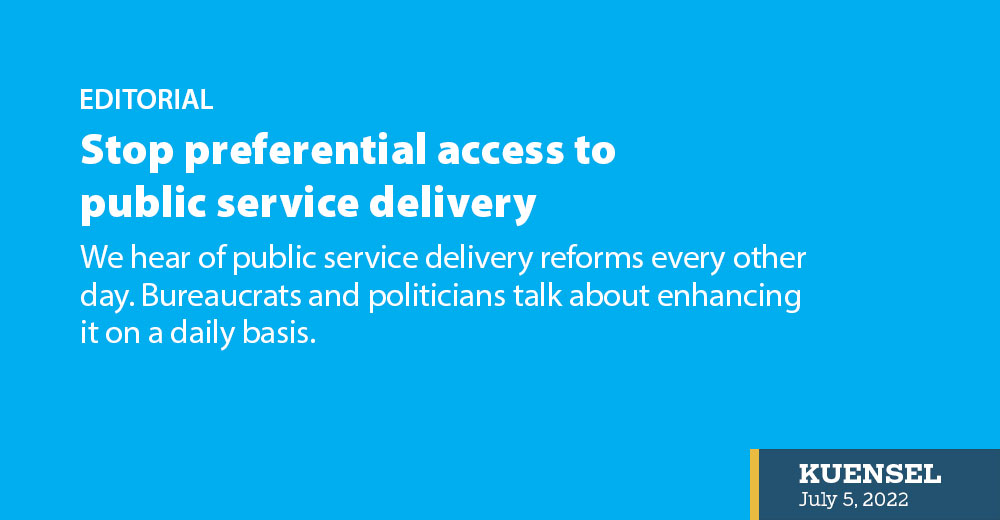We hear of public service delivery reforms every other day. Bureaucrats and politicians talk about enhancing it on a daily basis.
But those availing services know it is a must to have connections and links if they want timely service. That is the reason we uphold the culture of looking for people you know the moment you want service from any agency or office dearly. In the present context, social media groups are flooded with messages inquiring if anyone works in this office or that.
Enhanced public service delivery is about easy access to basic services. It doesn’t make sense if a patient has to wait for a week to meet a specialist or a doctor or wait for a week or two to have documents notarised. From school admissions to police to court cases, people rely on connections and links. Its high prevalence makes people suspicious and sceptical of the system in place. It erodes their trust.
As a corporate employee had put it, this system of using connections and links to avail service is called Thuenlam or Ngosheb which shows the flaws in the system. People use connections when the layer of bureaucracy is thick.
Normalising this system of using connections is dangerous. Those without connections or links are the less privileged. It would widen the inequality gap. Seeking services the normal way will stress them and make them feel like second-class citizens.
A nation taking pride in promoting Gross National Happiness and citizens’ well-being cannot afford to have people breaking queue and walking inside a doctor’s chamber or receiving blessings without any sense of guilt.
Having a proper system in place will stop preferential access. Some offices have already stopped entertaining requests to expedite services. Every office and organisation should adopt the measure. There should be transparency about the tokens or appointments issued. There should also be standard operating procedures.
A survey Royal Civil Service Commission conducted in 2017 showed numerous flaws in public service delivery and found most services were designed from the perspectives of the providers and not the end-users. Nothing much has changed today.
It also found that providing services from 9am-5pm reflects a government-centric mindset, but it has not changed yet. Even online applications are accepted at the timeframe for most services. If this doesn’t change, our online or digital services will not meet the intended purposes.
Let us commit to stopping biases and making services accessible to all people. We must prioritise leveraging technological advancement to complement public service delivery.


